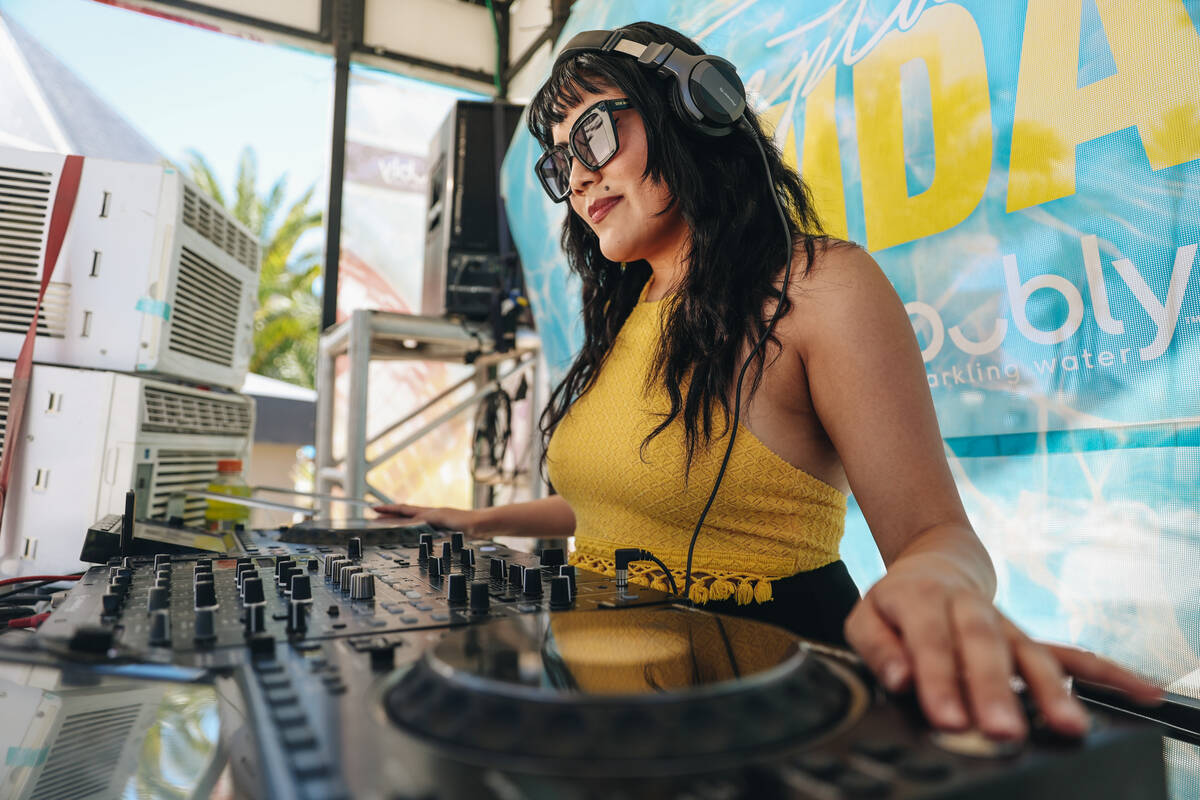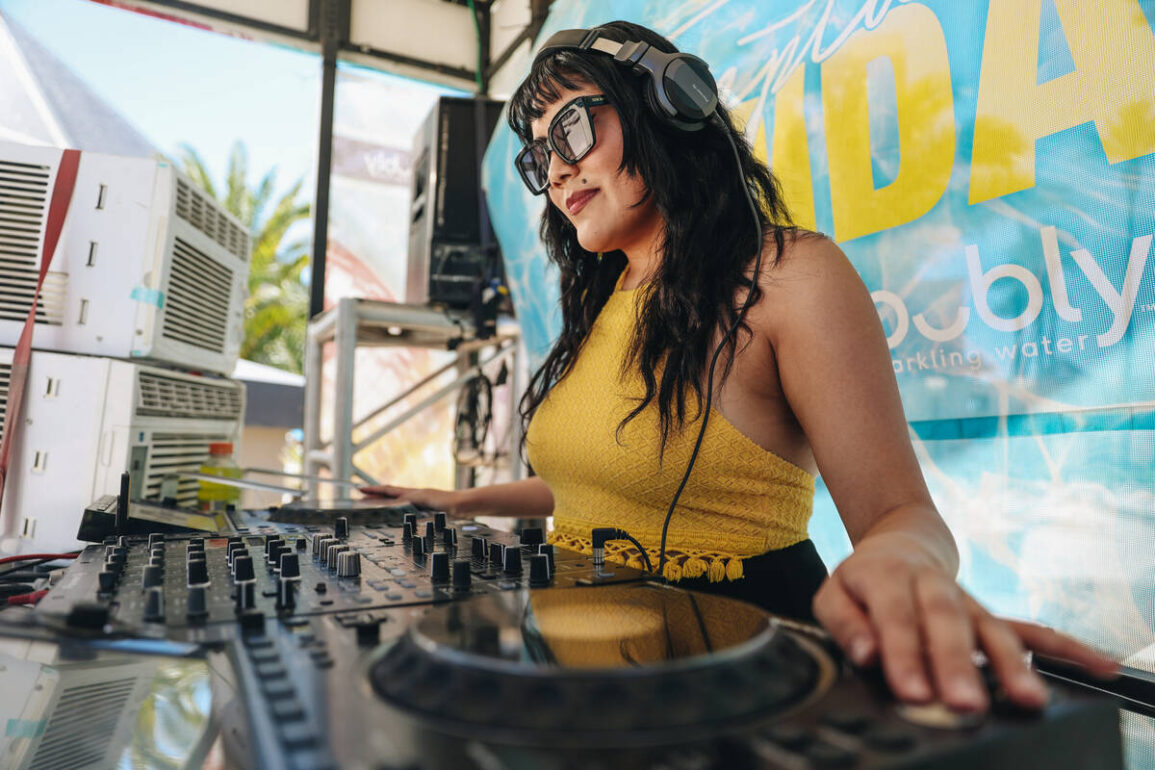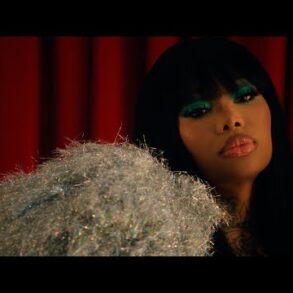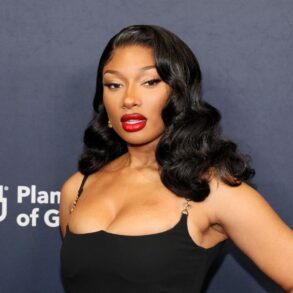
DJ Aravi was in high spirits as she DJed Sunday Temptations, an LGBTQ+ pool party at the Luxor, on the last day of Pride month June 30. In a yellow halter top and a big, black sunglasses, the party started before guests were inside the door, thanks to her beats. Sunny skies, colorful pool floats and lounge chairs combined with upbeat dance music set the scene for a festive Sunday afternoon.
It’s not all fun and games, though. In the six years DJ Aravi turned tables in Vegas, she’s faced sexism and sabotage from crowds and fellow DJs as she found her way through a male-dominated industry. From listener apprehension about a female headliner to a male DJ tampering with her setup before she went on, DJ Aravi confronted some obstacles in her time.
Within the challenges, she’s discovered a supportive community. She found a group of female DJs who can be heard at the city’s hottest clubs, or as the main act at big venues on The Las Vegas Strip weekly. From time to time, they play at corporate events and community gatherings.
“I’ve gotten a great response from the girlies,” DJ Aravi said, speaking about reactions to a female DJ.
Female artists face some significant challenges. Women in the industry have to fight to be taken seriously, work to desexualize their image and struggle to overcome racism.
Challenges
DJ Kelley J, otherwise known as Kelley Webb, grappled with her image as a younger artist. Finding the line between looking attractive and maintaining her professionalism was difficult until her mentors helped guide her to finding a happy medium.
“It was a lot of trial and error,” Webb said. “They would say, ‘Don’t worry so much about looking like a sexy female DJ, or even a sexy model. Look like a CEO.’”
Webb, 34, who is Black, dealt with racism in her earlier days, and while it’s less prevalent now, she believes discrimination within the industry will never fully go away.
DJs are booked with the idea that they’re going to bring a crowd with them. Some club and venue managers were worried the hip-hop-playing Webb would attract a clientele they weren’t looking to serve, she said.
“It was assumed if I’m booked and if I’m playing hip hop, that I’m not bringing in the crowd that is going to spend as much money as this other crowd,” Webb said. “Or I’m going to bring in too many people that look like me, and they didn’t want that either, a lot of these places didn’t.”
Now, Webb plays open format, meaning she can play any style of music, which broadened her client list, though it took her some time to get her brand to match her capabilities.
Miss Parker, also known as Teri Parker, 31, faced challenges of her own in her six years in the scene. Parker’s DJ avenue aligns with trap hip hop music, and for a while, it seemed she was only hired for looks. It’s a stigma in the hip hop world, she said.
Parker considers how her Instagram posts may be perceived by a man, which plays into her social media presence. She sets strict boundaries when it comes to business, but even with boundaries, she still runs into scary situations.
“The reality is you’re never going to fully get away from that,” she said. “You can’t control what other people are going to do. We all wish we could.”
In June, Parker received an explicit photo from a man claiming to work at a venue she plays weekly. It caused her to question her safety within her career.
“Would you send that to a male client or DJ? No, but that’s what they think is OK for us,” she said.
Finding a niche and a community
The female DJ scene is tight-knit. It lacks a sense of extreme competitiveness because there’s enough room for everyone, said DJ Crykit, also known as Michelle Kolnik.
Kolnik’s sees a purpose for all types of female DJs. In the past, she resented more feminine women getting gigs over her. Now, as a 42-year-old woman, she sees that everyone has a role. Some venues prefer a feminine DJ, rocking heels and a dress, while others prefer women like Kolnik who wear more gender-fluid clothes, she said.
Outside of looks, there’s a necessity for different sounds. Kolnik describes her own as eclectic.
“There’s so many other lanes for me to be in and welcomed and embraced, for me to be me,” Kolnik said. “I feel like a lot of girls really tend to dance. There’s a lot more feminine energy — obviously, we’re females. Feminine energy can be more welcoming and embracing.”
She found her place as an artist, but Kolnik also found a place within the female DJ community.
“It’s a great support group,” she said. “Anytime there’s a new girl coming to town, we welcome them to Vegas.”
Kolnik is part of a nonprofit organization called No Scrubz, which was founded by Lo Dino, also known as Shakilo Barton. The group began as a ladies night and evolved into a platform for female, transgender and non-binary DJs to perform in a safe space and receive guidance from their more advanced counterparts.
Lo Dino, 31, stepped away from full-time DJing in 2020 following intense creative burnout, but No Scrubz didn’t stop. The nonprofit went from monthly shows to quarterly shows, but there’s still a big turnout, Barton said.
“It’s been really honestly rewarding, and we’re always just trying to just give resources to artists, trying to just build community with them, and also just build that safe space for people,” Barton said.
No Scrubz built a community for female DJs in which many women have found solace. But it’s not the only support group for women in Vegas.
DJ Aravi, or Jennifer Trujillo, 30, has worked a few No Scrubz events, also found community in DJ Jenna Palmer’s group, coined as Vegas’ Finest. The group allowed Trujillo to make friends within the DJ scene as the new kid in town when she moved to the city six years ago, she said.
“I was so excited,” she said. “Within a male-dominated industry, at that point in time, I feel like there was a little bit less of us, but we would all still gather together. Now, I feel like it’s grown a lot more.”
She credits the progress made to some of the DJs who’ve been playing for 15 plus years. DJs like DJ Jenna Palmer set a standard for how women treat each other within the industry, Trujillo said.
“I love supporting each other. I’m fully like ‘We’re not competition, let’s help each other,’” Trujillo said.
DJ Jenna Palmer, or Jenna Montijo, 39, has been in the game for 20 years and started Vegas’ Finest, of which Trujillo is a part of. Montijo’s goal was to mend the gaps between female artists in the city by introducing them to one another.
She feels the group has had success.
“We like each other and we support each other,” Montijo said. “I feel like it always hasn’t been like that.”
She struggled to be taken seriously in her earlier years, something she isn’t sure will ever go away. She feels, even today, female DJs are sometimes referred to as commodities or props.
“We’re just DJs regardless of our gender,” Montijo said.
Contact Ella Thompson at ethompson@reviewjournal.com. Follow @elladeethompson on X.
This post was originally published on this site be sure to check out more of their content.









